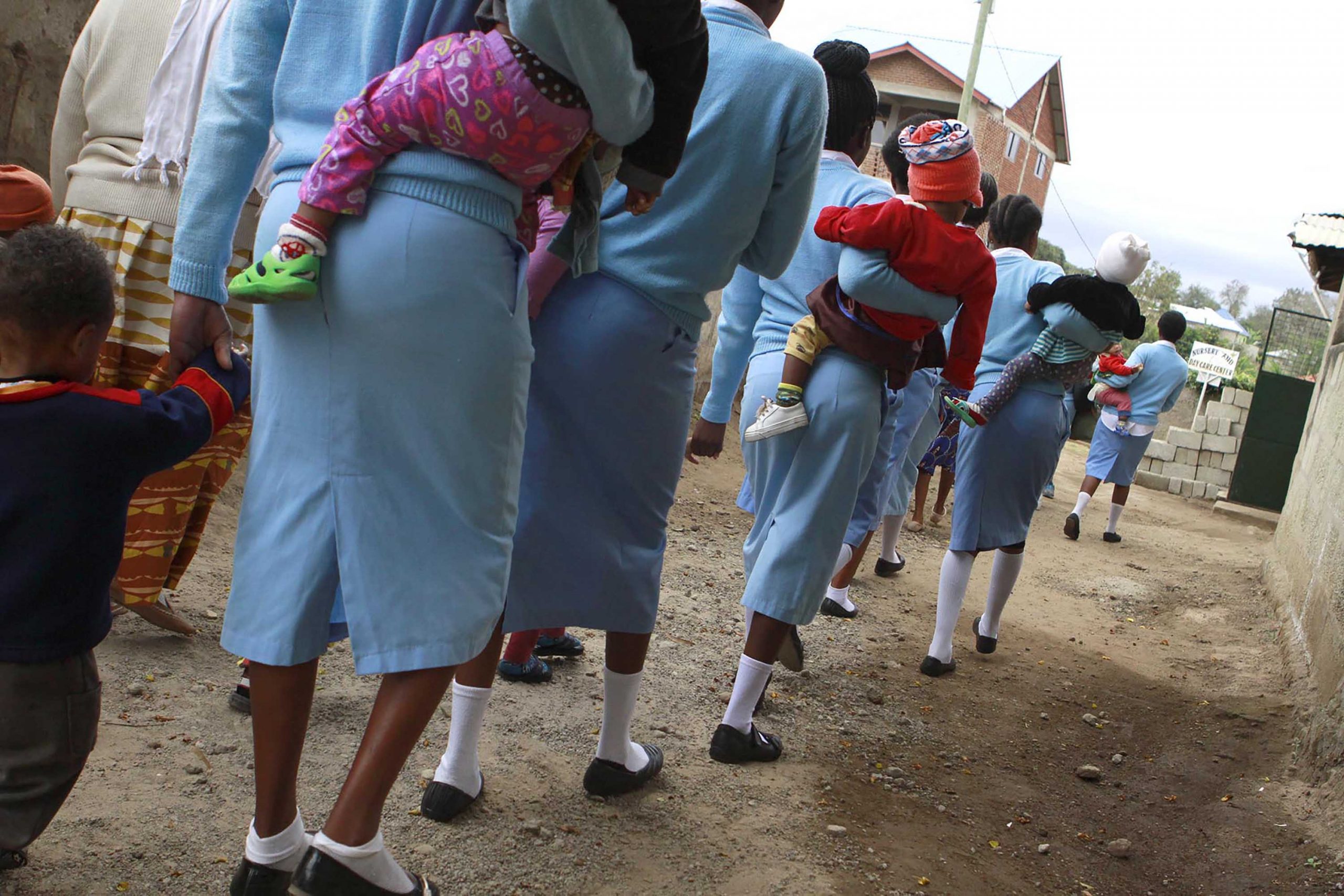Ban on pregnant students and adolescent mothers attending school has denied tens of thousands of girls their right to education, Human Rights Watch said today.
Public schools across mainland Tanzania conduct compulsory pregnancy testing on female students and expel pregnant girls before they complete their compulsory education.
Since June 2017, the late President John Magufuli and his successor, President Samia Suluhu Hassan, who took office in March 2021, have enforced an official ban against students who are pregnant or are mothers.
“Tanzania’s girls are suffering because the government insists on an arbitrary policy that is ending their education, humiliating and isolating them, and destroying their futures,” said Elin Martinez, senior children’s rights researcher at Human Rights Watch. “The government should urgently end this inhumane policy and allow pregnant students and mothers back in school.”
Human Rights Watch in July and August interviewed 30 girls and women ages 16 to 24. All had been expelled from school or stopped attending primary or secondary school between 2013 and 2021 because they were pregnant.
School officials and teachers are the primary enforcers of the government’s policy, often in ways that humiliate and stigmatize girls, as well as their parents and guardians. Most of those interviewed had been tested for pregnancy at school or at a local hospital or dispensary, and then summarily expelled.
A number of girls were expelled just before completing lower secondary education, a milestone for many students given the country’s low retention rates in secondary education. Several were unable to take national qualifying exams in Form 4, the last year of lower secondary school, because schools conducted pregnancy tests just before or in the middle of these exams.
School officials in Morogoro region in 2020 expelled a 16-year-old girl. Before her last two Form 4 exams: “They simply said because I was pregnant … I was supposed to be kicked out of school even though I was left with only two exams. I really don’t know what they were thinking …. They didn’t even want to hear me out. They just kicked me out of school.”
Most girls and women interviewed were not enrolled in training programs or alternative education centers. Several were enrolled in non-formal tailoring training, and a couple attended a nongovernmental school that supports girls who have been expelled from public schools.
In 2020, the Tanzanian government announced that it would allow students who were pregnant or were mothers to enroll in a parallel accelerated education program, described as “alternative education pathways.” This program will be expanded with US$180 million of the World Bank’s US$500 million loan for Tanzania’s Secondary Education Quality Improvement Program (SEQUIP).
In describing this program, the World Bank stated that “while there is no government policy that states that students who become pregnant must be expelled from public schools, most pregnant girls do drop out.” Tanzanian government and the World Bank have sought to promote this program as a comparable education alternative for girls who have “dropped out” of school because of pregnancy.
Although alternative education pathways are important for children who prematurely drop out of school, Tanzania’s parallel system effectively remains the only option for girls who have been expelled and denied their right to education without completing compulsory education.
But most centers charge tuition, and students often have to travel long distances to them. This perpetuates the same financial and access barriers that many girls face in secondary schools. Many centers don’t offer additional support for adolescent mothers, including child care.
Tanzania is one of the three sub-Saharan African countries that Human Rights Watch found to adhere to an official ban against pregnant students. In March 2020, Sierra Leone, which had an identical discriminatory ban against pregnant schoolgirls and teenage mothers, reversed its 10-year-old policy. In March 2021, the Sierra Leone government adopted a policy of “Radical Inclusion,” which reaffirms pregnant girls and adolescent mothers’ right to education. Human Rights Watch found that at least 30 African Union countries now have laws, policies, or strategies to protect pregnant students and adolescent mothers’ right to education.
President Suluhu Hassan should enact a decree to effectively end the expulsion of pregnant students, order government officials to end punitive and discriminatory practices against girls, and direct the Ministry of Education, Science and Technology to adopt a policy that adequately protects the rights of both pregnant students and adolescent mothers to study in public schools, Human Rights Watch said.
“Tanzania is an outlier from other sub-Saharan African countries that have adopted laws, policies, and strategies to uphold the right to education of pregnant students and adolescent mothers,” Martinez said. “President Suluhu should end the ban on pregnant students and adolescent mothers and make a commitment to safeguard and fulfill every girl’s right to an education.”


